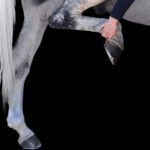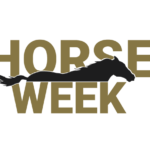July 23, 2010 — The Kentucky state veterinarian’s office has the yeoman’s responsibility to regulate and manage the importation of an estimated 800 horses representing 62 countries that are scheduled to participate in the 2010 Alltech FEI World Equestrian Games Sept. 25-Oct. 10 at the Kentucky Horse Park.
“The World Equestrian Games are far greater in size and scope than anything the state veterinarian’s office has managed before,” Agriculture Commissioner Richie Farmer said. “However, the staff of the state veterinarian’s office has vast experience in equine health and works several large-scale and high-profile events every year. These equine athletes couldn’t be in better hands.”
“The state veterinarian’s office is committed to providing a healthy environment for the horses that will come to Kentucky to compete in the Games,” State Veterinarian Robert C. Stout said.
Five equine inspectors currently conduct inspections at the Kentucky Horse Park, averaging 130 inspection hours per week, said E.S. “Rusty” Ford, who manages the Kentucky Department of Agriculture’s Equine Program. The Office of the State Veterinarian (OSV) is working to ensure that the park’s resident equines meet the health requirements of the equestrian sport’s governing body, the F?d?ration Equestre Internationale (FEI).
On September 16, the largest airlift of horses to a single event in history will begin arriving in the U.S. Three-quarters of the horses will land at the Cincinnati/Northern Kentucky International Airport. The horses will spend their first 42 hours in Kentucky in stalls inside the barns at the recently constructed Northern Kentucky Temporary Quarantine.
Other horses will be quarantined at the Miami Animal Import Center and Los Angeles International Airport. Horses from North America will be transported to the park by truck.
Any imported horse presenting evidence or suspicion of illness will be held in quarantine and not permitted to travel to the park until the concern is resolved.
Prior to entering the park, all horses will be required to pass a KDA inspection and have their health status verified in order to be admitted to the stable area. All horses on the park grounds will be continuously monitored and evaluated daily by KDA, FEI and World Equestrian Games personnel.
Planning and preparation to make Kentucky a viable option began long before Kentucky was selected to host the 2010 Games.
“There was work that had to be done before Kentucky could even bid for the Games,” Ford said. “When you’re allowing horses from all over world to be imported to Kentucky, you have to mitigate all potential risks. And we’re confident that we’ve done that.”
The OSV’s goals are to provide a safe and healthy environment for the horses coming to the Games and prepare to detect early, respond to and resolve any potential disease threat.
“With so many horses coming from all over the world, we have spent considerable time and resources to better familiarize ourselves with and understand a much broader spectrum of equine disease than what we have dealt with on a day-to-day basis our entire careers,” Ford said. “We are confident that, with the preparations we have done, and with our daily presence and readiness during the World Equestrian Games, there will be no safer place than the Kentucky Horse Park to host an event of this magnitude.”
John Nicholson, executive director of the Kentucky Horse Park stated, “The health and safety of every horse who lives, visits or competes at the Kentucky Horse Park is always of paramount importance to us. Horses have made Kentucky famous throughout the world and it is our intention, privilege, and obligation to do everything in our power to ensure their well-being. We are very grateful to the state veterinarian’s office for everything they are doing to work with us toward that goal.”
An agency of the Kentucky Department of Agriculture, the Office of the State Veterinarian is responsible for preparing for, detecting and responding to potential illnesses and mitigating risk of disease transmission.
“We look forward to welcoming competitors and visitors from around the world to the World Equestrian Games this fall,” Commissioner Farmer said.





